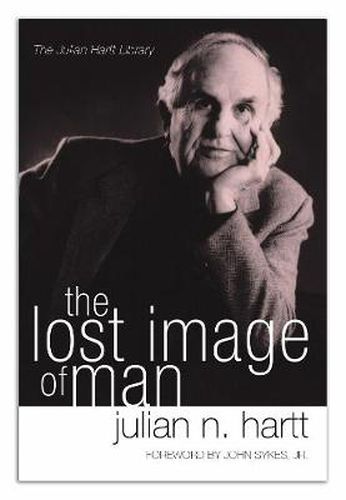Readings Newsletter
Become a Readings Member to make your shopping experience even easier.
Sign in or sign up for free!
You’re not far away from qualifying for FREE standard shipping within Australia
You’ve qualified for FREE standard shipping within Australia
The cart is loading…






To Julian N. Hartt, our writers are the real creators of human history. It is they who from their imagination and their heritage fashion works that reflect as well as guide man’s destiny. And their art, rather than science or philosophy, is the realm through which this theologian traces the present human condition. Hartt maintains that we have, for better or for worse, cancelled our heritage. Just how we have done so can be seen in the negation, death, and transfiguration in contemporary fiction of traditional images by which man has always seen himself: the epic image, the dream of innocence, the erotic image, and the eschatological image. To illustrate, the epic is now the anti-epic Ulysses, while our shattered dream of innocence is best described in Faulkner’s Light in August and Camus’ The Fall. Hartt sees the traditional marriage of flesh and spirit in the erotic image now modified to the concept of sexuality as a divine power in Lawrence, as totally blighted in Styron, cramping in Moravia, and as a possible pathway to creativity in Durrell. In his discussion of the eschatological image, Hartt asks what is perhaps the most crucial of questions: Has the hope for that Great Tomorrow of biblical disclosure–the appearing in glory of the perfected community–become too feeble, dim, remote, to minister to the frenzy, terror, and ‘wisdom’ of our age? The Marxist of In Dubious Battle has one answer, and Koestler another. But it is in Paton’s Cry, the Beloved Country that Hartt finds this hope alive and vigorously represented. The mood in which Hartt writes is not therefore lamentation, and his purpose not another flagellation of that woeful creature, Modern Man. He has not made a point of consulting only those artists who have bad news for us. Nor has he lingered long with writers animated by a desire to speak comfortably to Jerusalem. The curse laid against false prophecy, though uttered long ago, is still binding: Woe to them who cry ‘Peace! Peace!’ when there is no peace.
$9.00 standard shipping within Australia
FREE standard shipping within Australia for orders over $100.00
Express & International shipping calculated at checkout
To Julian N. Hartt, our writers are the real creators of human history. It is they who from their imagination and their heritage fashion works that reflect as well as guide man’s destiny. And their art, rather than science or philosophy, is the realm through which this theologian traces the present human condition. Hartt maintains that we have, for better or for worse, cancelled our heritage. Just how we have done so can be seen in the negation, death, and transfiguration in contemporary fiction of traditional images by which man has always seen himself: the epic image, the dream of innocence, the erotic image, and the eschatological image. To illustrate, the epic is now the anti-epic Ulysses, while our shattered dream of innocence is best described in Faulkner’s Light in August and Camus’ The Fall. Hartt sees the traditional marriage of flesh and spirit in the erotic image now modified to the concept of sexuality as a divine power in Lawrence, as totally blighted in Styron, cramping in Moravia, and as a possible pathway to creativity in Durrell. In his discussion of the eschatological image, Hartt asks what is perhaps the most crucial of questions: Has the hope for that Great Tomorrow of biblical disclosure–the appearing in glory of the perfected community–become too feeble, dim, remote, to minister to the frenzy, terror, and ‘wisdom’ of our age? The Marxist of In Dubious Battle has one answer, and Koestler another. But it is in Paton’s Cry, the Beloved Country that Hartt finds this hope alive and vigorously represented. The mood in which Hartt writes is not therefore lamentation, and his purpose not another flagellation of that woeful creature, Modern Man. He has not made a point of consulting only those artists who have bad news for us. Nor has he lingered long with writers animated by a desire to speak comfortably to Jerusalem. The curse laid against false prophecy, though uttered long ago, is still binding: Woe to them who cry ‘Peace! Peace!’ when there is no peace.